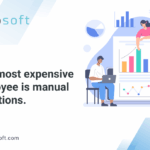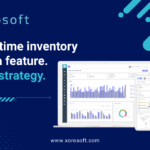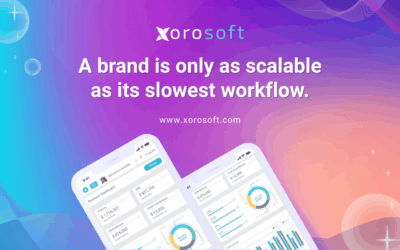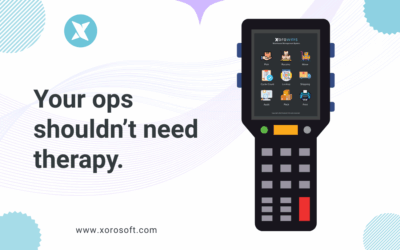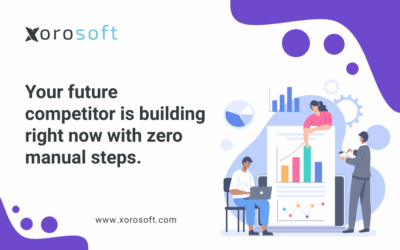
Introduction to Key Performance Indicators (KPIs) in ERP systems
In today’s competitive business landscape, maximizing the efficiency and performance of an ERP system is crucial for success. One powerful tool that can help businesses achieve this is the use of Key Performance Indicators (KPIs). KPIs are measurable values that indicate how well an organization is progressing towards its goals. When it comes to ERP systems, leveraging KPIs in demand planning can be a game-changer. By closely monitoring and analyzing these indicators, businesses can make informed decisions and optimize their ERP systems for improved performance.
Understanding the importance of KPIs in demand planning
Demand planning is a critical aspect of any ERP system, as it involves forecasting and managing the demand for products or services. By using KPIs in demand planning, businesses gain valuable insights into their supply chain, inventory levels, and customer demand. These indicators allow organizations to identify trends, spot potential issues, and make data-driven decisions. For example, KPIs such as inventory turnover rate and order fill rate provide visibility into inventory management efficiency and customer satisfaction. By monitoring these KPIs, businesses can proactively address supply chain bottlenecks, reduce stockouts, and improve customer service.
The benefits of leveraging KPIs in XoroERP’s demand planning module
XoroERP, an advanced ERP solution developed by Xorosoft, offers a robust demand planning module that integrates seamlessly with its KPI tracking and monitoring capabilities. By leveraging KPIs in XoroERP’s demand planning, businesses can unlock several benefits. Firstly, it provides real-time visibility into demand patterns, allowing organizations to accurately forecast future demand and optimize inventory levels. This, in turn, reduces carrying costs and minimizes the risk of stockouts or overstocking. Secondly, by monitoring KPIs such as on-time delivery and order accuracy, businesses can enhance customer satisfaction and build stronger relationships with their clients. Lastly, XoroERP’s demand planning module enables businesses to align their production schedules, procurement activities, and inventory management with demand fluctuations, resulting in improved operational efficiency.
How to identify and define KPIs for your ERP system
Before implementing KPI tracking in your ERP system, it is essential to identify and define the right set of indicators that align with your business goals and objectives. Start by conducting a thorough analysis of your organization’s processes and workflows. Identify the key areas that impact your ERP system’s performance, such as inventory management, order fulfillment, and customer satisfaction. Once you have identified these areas, determine the specific metrics that best measure performance in each area. For example, in inventory management, metrics like carrying cost, stockout rate, and inventory turnover rate are commonly used KPIs. Ensure that your chosen KPIs are relevant, measurable, and aligned with your business objectives.
Setting targets and benchmarks for KPIs in demand planning
Setting targets and benchmarks for your KPIs is crucial for measuring performance and progress. These targets serve as a reference point and help businesses understand whether they are on track or need to make adjustments. When setting targets for KPIs in demand planning, consider both historical data and industry benchmarks. Analyze your past performance and identify areas for improvement. Look for industry standards and best practices that can guide your target-setting process. By setting realistic and achievable targets, businesses can motivate their teams, monitor progress, and continuously strive for improvement.
Implementing KPI tracking and monitoring in XoroERP
XoroERP’s demand planning module provides a user-friendly interface for implementing KPI tracking and monitoring. Start by configuring the system to capture the required data for each KPI. This may involve integrating with other modules, such as the inventory management system and accounting. Once the data is captured, XoroERP’s demand planning module allows businesses to visualize and analyze the KPIs through customizable dashboards and reports. Furthermore, the system can be set up to automatically generate alerts and notifications when KPI thresholds are breached. This proactive approach ensures that businesses can quickly identify and address any issues that may impact their ERP system’s performance.
Analyzing and interpreting KPI data in XoroERP’s demand planning module
Analyzing and interpreting KPI data is a crucial step in leveraging the power of these indicators. XoroERP’s demand planning module offers advanced analytical tools that enable businesses to dig deep into their KPI data. Businesses can perform trend analysis, compare performance across different time periods, and identify patterns or anomalies. By interpreting this data, organizations can gain valuable insights into their demand patterns, customer behavior, and supply chain efficiency. This information can then be used to make data-driven decisions, optimize processes, and drive continuous improvement.
Leveraging KPI data to optimize your ERP system’s performance
The true value of KPIs lies in their ability to drive actionable insights and optimize your ERP system’s performance. By leveraging KPI data in XoroERP’s demand planning module, businesses can uncover areas for improvement and implement targeted strategies. For example, if the stockout rate KPI indicates frequent stockouts, businesses can review their inventory management processes and adjust reorder points or safety stock levels. Similarly, if the on-time delivery KPI shows poor performance, businesses can identify bottlenecks in their supply chain and take corrective actions. By continuously monitoring and analyzing KPI data, organizations can ensure that their ERP system is always optimized for maximum efficiency and effectiveness.
Integrating KPIs with other modules in XoroERP – inventory management and accounting
To fully leverage the power of KPIs, it is essential to integrate them with other modules in XoroERP, such as inventory management and accounting. By integrating KPIs with these modules, businesses can gain a holistic view of their operations and make informed decisions. For example, by combining inventory turnover rate KPI with inventory management data, businesses can identify slow-moving or obsolete items and take appropriate action. Similarly, by integrating on-time payment KPI with accounting data, businesses can monitor customer payment trends and mitigate cash flow issues. This integration ensures that KPIs are not isolated metrics but rather valuable insights that drive strategic decision-making across the organization.
Xorosoft ERP: A comprehensive solution for effective demand planning and KPI optimization
Xorosoft ERP is a comprehensive solution that combines powerful demand planning capabilities with advanced KPI optimization features. With its user-friendly interface, seamless integration, and robust reporting capabilities, Xorosoft ERP empowers businesses to unlock success through effective demand planning and KPI tracking. By leveraging the power of KPIs in Xorosoft ERP, organizations can optimize their ERP system’s performance, improve operational efficiency, and drive sustainable growth. Book a demo with Xorosoft today to experience the power of KPI-driven ERP optimization.
Conclusion
In conclusion, leveraging Key Performance Indicators (KPIs) in demand planning can significantly optimize your ERP system’s performance. By understanding the importance of KPIs, identifying and defining the right indicators, setting targets and benchmarks, implementing KPI tracking, and analyzing the data, businesses can unlock valuable insights and drive continuous improvement. XoroERP, with its robust demand planning module and advanced KPI tracking capabilities, offers a comprehensive solution for businesses seeking to optimize their ERP systems. By integrating KPIs with other modules and leveraging Xorosoft ERP’s features, organizations can streamline their operations, improve customer satisfaction, and achieve sustainable success. Book a demo with Xorosoft today and unlock the full potential of your ERP system.
